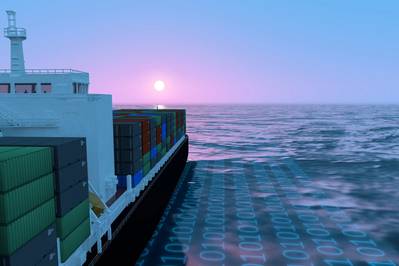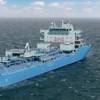Business and Personnel Considerations in the Age of Autonomous Ships:
There is much talk among maritime professionals about how automation and autonomous vessels will make the industry safer. In truth, innovation will be driven by the bottom line and will take time before it is commonplace in the industry. Early examples are likely to be limited to smaller vessels and coastal waters. Autonomous ships are predicted to reduce human error, a major driver of accidents, but crews will still have an important role on board vessels for the foreseeable future.
Recent Trials
In December 2018, Rolls-Royce demonstrated what it claims is the world’s first fully autonomous ferry on a trip between Parainen and Nauvo in Finland1. The UK-based engineering group plans to bring self-guided cargo ships to the world’s seas by 2025. Three months later, in March 2019, a series of autonomous operations trials were held in the North Sea off the Netherlands coast by The Dutch Joint Industry Project: Autonomous Shipping to show the decision-making process of an autonomous system in ensuring safe sailing and avoiding collisions with other vessels.
Meanwhile, Norwegian shipbuilder VARD is currently building a small autonomous electric container vessel for fertilizer company Yara, planned for launch in early 2020 with autonomous operation expected by 20222. China is setting up a 225-square-mile test zone for autonomous ships while a group of Japanese shipping lines have formed a consortium to build remote-control cargo ships by 2025.
Adapting to the Technology
Most of us have experienced numerous instances in both our business and private lives where we were told that a particular technology would “not disrupt normal operations” or that implementation would be seamless and “you won’t even know it’s there.” A common theme that is put forth is that technology will be designed to adapt to the user. While this may be viable on the macro scale, it is not the case on the micro scale. I only have to think back to my last phone upgrade or the last time I bought a new microwave. All too often we adapt to the technology. In many cases, it is simply the way our brains are wired: tool use is a key component of our collective pasts. This is likely how it will play out for the marine industry with individuals adapting to the new technology versus the other way around.
Adapting to the New Environment
Another key issue is that as maritime autonomous technology begins to make inroads into our industry, the pace of change will accelerate. Once the technology becomes available, there will be numerous business pressures that will force the adaption of some form of the technology to be adopted. These may be regulatory, legislative or customer-driven demands.
So where does that leave vessel operators and their crews? All vessel operators should stay abreast of developments in the arena of autonomous vessel operations. The issue of maintaining a suitable manpower pool with the requisite skills is also critical. We are dealing with a new generation of mariner and boat operator entering the industry. While some may discredit their overreliance of technology, we need to capitalize on the benefits it brings to the industry.
This is not the time to sit on the side lines with the business operating profile of “we have always done it this way”. I look at it this way – yes there were still blacksmiths after Henry Ford, but auto mechanics soon outnumbered them. So stay educated on the latest developments and proactively adopt improved safety and navigation technology and procedures.
As an industry, we must drive this discussion and help steer innovations so that they help us operate safely and more efficiently. Keeping the status quo is not a viable option, nor is just looking to be “Grandfathered” in. The landscape of “Grandfathering” in vessels from a compliance standpoint is under increased scrutiny given some of the tragic losses that have occurred in our recent past.
Cyber Security a Major Concern
An important step that has implications for autonomous vessels is the need for operators to enhance cyber security for their shoreside and afloat infrastructure.
The United States Coast Guard developed guidelines with recommended action, including:
• Conduct a Risk Assessment: Begin by assessing what parts of your enterprise are controlled or supported by computer systems. What are the consequences should those systems become inoperable, controlled by outside parties, or misused by internal parties?
• Identify and Adopt Best Practices: What information technology security standards are most applicable to your systems? Are your systems meeting those standards? Are your employees familiar with them? When were they last updated? What backup systems, redundancies, or replacements are available?
• Secure Your Supply Chain: As with just-in-time inventory and production systems, consider the cyber vulnerabilities and practices of your suppliers, customers, and other organizations critical to your company’s profitability. Discuss cyber security with those organizations and consider incorporating good cyber practices into marketing and contracting.
• Measure Your Progress: Test your cyber practices through drills and exercises. Identify any gaps or lessons learned, and set specific goals with timelines for making needed improvements.
• Revise and improve security: Review your latest risk assessment, evaluate any new cyber systems you may have added since that time, incorporate lessons learned and revise your cyber security policies and procedures accordingly.
One way to start this process is to take advantage of the Department of Homeland Security’s Industrial Control Systems Cyber Emergency Response Team (ICSCERT). ICS-CERT provides a wide range of information, tools, and services that can help companies assess their security, identify recommended practices, and improve their cyber security. http://ics-cert.us-cert.gov
The Office of Port and Facility Compliance continues to collaborate with the National Institute of Standards and Technology (NIST) National Cybersecurity Center of Excellence (NCCoE) to develop customized maritime specific cybersecurity framework Profiles. Please check Homeport for the most up-to-date information on cyber risk management: https://homeport.uscg.mil.
Insurance Implications
The use of new technology may lead to new risk scenarios, which underscores the importance for shippers to stay engaged with their brokers and underwriters. Insurers work closely with them to understand companies’ needs from an operational standpoint. This is not a one size fits all business, and every operating environment presents unique challenges. By staying engaged and understanding your current operations, insurers are able to help companies in the maritime industry navigate the challenges that lay ahead. Find an Underwriter who understands your market and will work with you to address your particular needs. Ensuring that you have properly trained and credentialed crew aboard your vessels will continue to be one of the most effective steps that you can take to have a safe and efficient operation, both now and in the future.
Advancements in autonomous vessels continue to be made, particularly with smaller vessels and in coastal waters, but further study is needed. As problems with container ships have shown, innovation and technology is not a panacea if the root cause of incidents and losses is not addressed. Innovations like autonomous vessels are driven by efficiency and do not automatically lead to improvements in the safety of shipping. For as long as it is driven by accounting, autonomous vessels will not lead to zero losses.
Footnotes:
1Ventureboat.com, Rolls Royce demonstrates fully autonomous passenger ferry in Finland, December 2018
2 Hellenic Shipping News, Maritime autonomous surface ships on the horizon, February 2019














